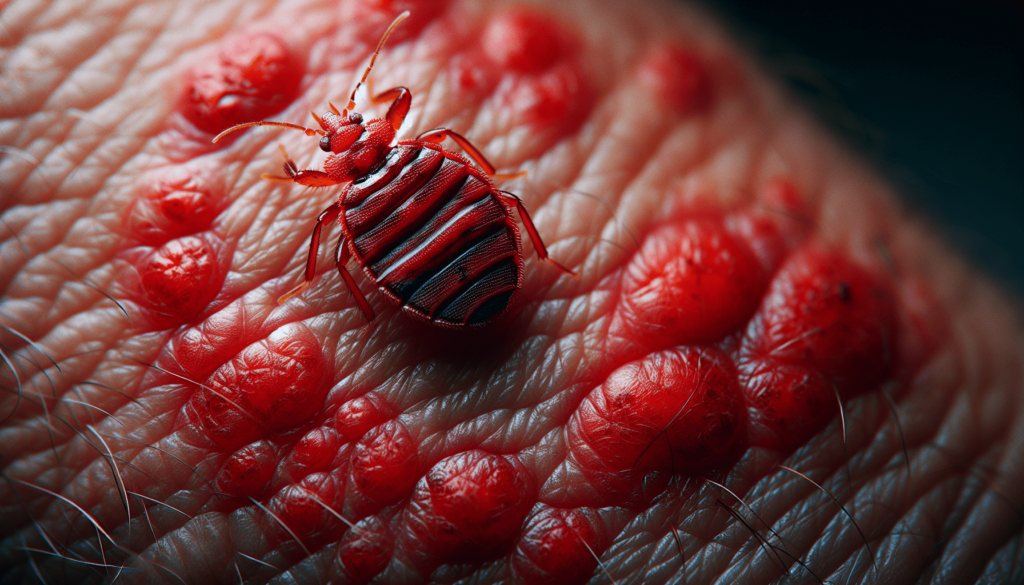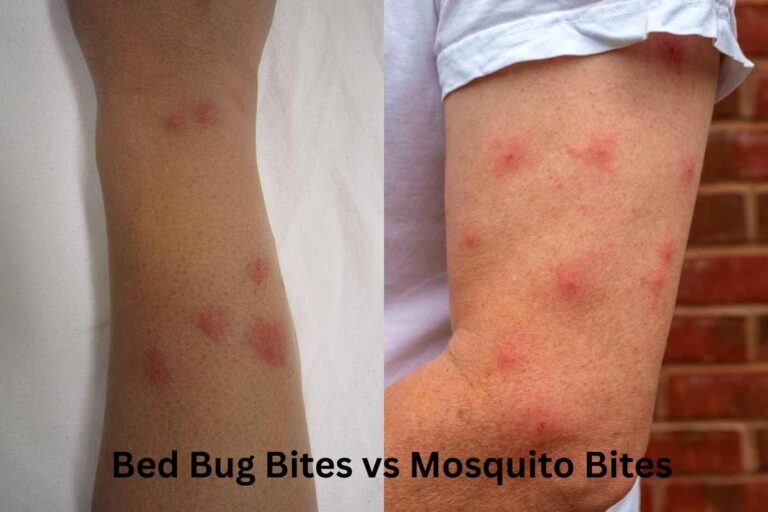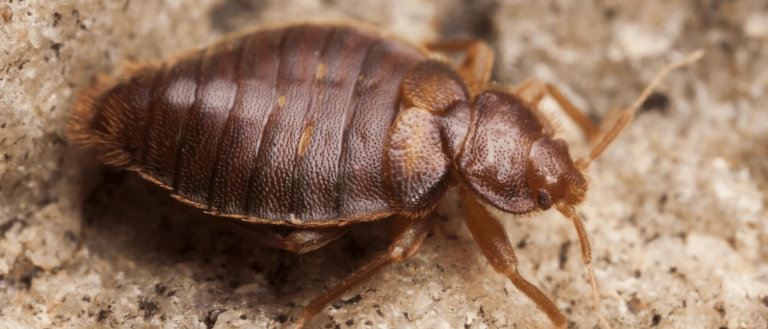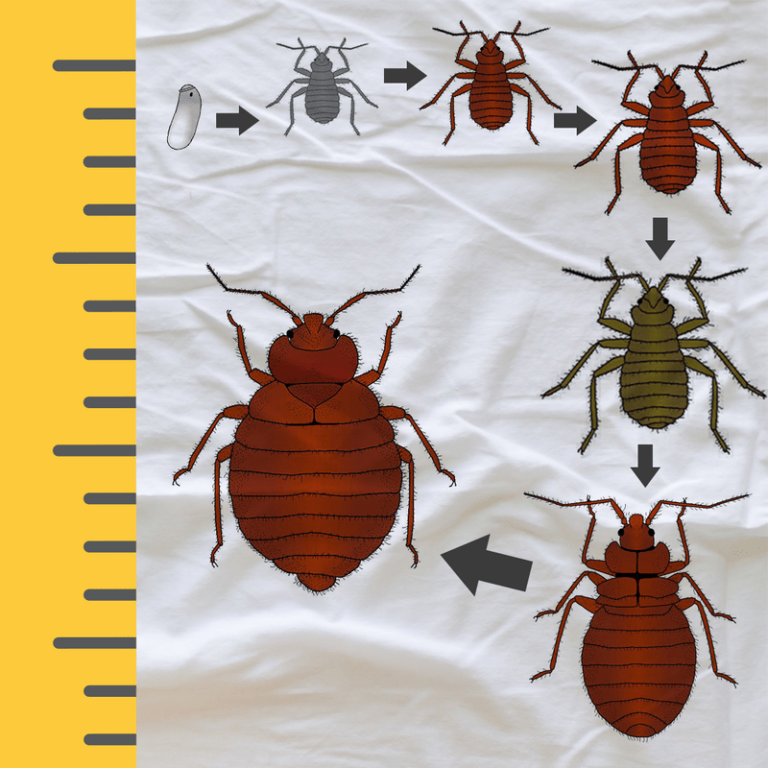10 Surprising Things Bed Bugs Can Do to You
Bed bugs may be small, but they are capable of wreaking havoc on your life in surprising ways. From physical discomfort to psychological distress, these relentless pests can leave you with a multitude of unwanted consequences. In this article, we will explore the astonishing things that bed bugs can do to you. Through a comprehensive analysis of facts, statistics, and real-life examples, you will gain insights into the hidden dangers and effects of bed bug infestations. By the end of this article, you will have a deeper understanding of the various ways these insects can impact your health, well-being, and overall quality of life. Get ready to discover the astonishing capabilities of bed bugs and equip yourself with the necessary knowledge to combat them effectively.
Bed Bugs Can Live Anywhere
Bed bugs are notorious for infesting beds, hence their name, but they are not limited to just that location. These pesky insects can live and thrive in a variety of environments, including furniture, carpeting, clothing, and even electrical outlets. They are attracted to warmth and the presence of humans or animals, which makes any place a potential breeding ground for them.
Infestations can occur not only in homes and hotels but also in offices, schools, hospitals, and public spaces. This means that no place is truly safe from a bed bug infestation. They can easily hitch a ride on your belongings or crawl into your luggage when you least expect it. It is crucial to be vigilant and take preventive measures to avoid bringing bed bugs into your home or workplace.
Bed Bugs Can Go Months Without Feeding
One of the most surprising facts about bed bugs is their ability to survive for extended periods without a blood meal. While they typically feed every few days, they can go months without feeding if necessary. This survival skill allows them to remain hidden and undetected, making it difficult to eradicate an infestation.
The longevity of bed bugs without feeding has significant implications for long-term infestations. It means that even if you leave a space unoccupied for a while, the bed bugs can still be hiding and waiting for their next meal. Additionally, it makes it harder to completely eliminate them since they can survive in hidden areas without feeding.

This image is property of pixabay.com.
Bed Bugs Breed Rapidly
Bed bugs have an astonishing rate of reproduction, with females laying hundreds of eggs in their lifetime. They are known to reproduce at an alarming rate, which can quickly lead to a large infestation if left unchecked. These pests have the ability to multiply exponentially within a short period, causing their population to explode.
The rapid multiplication of bed bugs poses a significant challenge in eliminating them completely. Even if you manage to get rid of the adult bugs, their eggs can remain hidden and hatch later, starting a new cycle of infestation. This cycle of continuous reproduction makes it crucial to address a bed bug problem promptly to prevent it from escalating.
Bed Bugs Are Resistant to Many Pesticides
One of the reasons bed bugs are so difficult to eradicate is their resistance to many commonly used pesticides. Over time, bed bugs have developed resistance to the chemicals used to eliminate them, making it challenging to find effective solutions for eradication. This resistance can drive the growth of infestations, as the bugs are not easily eliminated by traditional pest control methods.
Scientists and pest control professionals are constantly searching for new and effective bed bug killers. The goal is to find pesticides that are not only lethal to adult bugs but also target their eggs and nymphs. This ongoing research aims to develop innovative strategies that can combat the resistance of bed bugs and prevent their spread.

This image is property of pixabay.com.
Bed Bug Bites Can Cause Allergic Reactions
Bed bug bites can cause a range of allergic reactions in individuals who are sensitive to their saliva. Common symptoms of bed bug bites include itching, redness, swelling, and small blisters on the skin. These reactions can vary from person to person, and some individuals may not have any noticeable reactions at all.
If you suspect that you have been bitten by bed bugs, it is essential to distinguish their bites from those of other insects. The appearance of bites can sometimes be similar to mosquito or flea bites. To determine if you are allergic to bed bug bites, consult a medical professional who can help diagnose and provide appropriate treatment.
Bed Bugs Can Cause Psychological Damage
Beyond the physical discomfort caused by bed bug bites, these pests can also have a detrimental impact on your mental health. The psychological effects of a bed bug infestation can be severe and range from anxiety and stress to depression and insomnia. The constant fear of being bitten or having an infestation can take a toll on your overall well-being.
It is not uncommon for individuals experiencing a bed bug infestation to develop insomnia, as they are afraid to sleep in their own beds. The lack of sleep can further exacerbate feelings of anxiety and stress. It is crucial to address both the physical and mental aspects of a bed bug infestation to restore peace of mind and well-being.

This image is property of pixabay.com.
Bed Bugs Can Interrupt Your Sleep
One of the most significant consequences of a bed bug infestation is the disruption it causes to your sleep. The presence of bed bugs and the fear of being bitten can make it challenging to get a good night’s rest. The itching and discomfort from bites can be a constant distraction, preventing you from falling asleep or staying asleep throughout the night.
The impact of sleep deprivation goes beyond feeling tired during the day. Lack of sleep can have serious consequences on your physical health, affecting your immune system, cognitive function, and overall well-being. Strategies for minimizing sleep disruption include seeking professional treatment for the infestation, using protective covers for your mattress and pillows, and practicing good sleep hygiene.
Bed Bugs Can Transmit Pathogens
While the primary concern with bed bugs is their bites and the discomfort they cause, there is some controversy regarding their ability to transmit pathogens. Various studies have found the presence of certain bacteria, viruses, and parasites in bed bugs, raising concerns about the potential for disease transmission.
However, the actual risk of getting sick from bed bugs is considered to be low. The pathogens found in bed bugs are not known to be efficient vectors for disease transmission. The greatest risk of illness associated with bed bugs is from secondary infections caused by scratching the bites. Proper hygiene and care for the bites can help prevent any complications.

Bed Bugs Can Hitch a Ride on Your Clothes
Bed bugs have the uncanny ability to move from place to place by hitching a ride on your clothes, luggage, or other belongings. They can easily cling to fabric fibers and hide in the seams of your clothes, making it difficult to detect them and prevent their spread.
To prevent the transfer of bed bugs on clothing, it is essential to take precautionary measures. When visiting public places or staying in accommodations, avoid placing your belongings on the floor or on beds. Instead, use luggage stands or racks. Additionally, regularly inspect and wash your clothes, especially after traveling or being in environments that may have been infested.
Bed Bugs Can Impact Personal Relationships
Aside from the physical and mental health implications, bed bugs can also have a significant impact on your personal relationships. The societal stigma associated with having a bed bug infestation can lead to strained friendships and strained relationships with family members. People may fear visiting your home or having contact with your belongings, out of fear of bringing the bugs into their own homes.
Navigating the social challenges related to bed bugs requires open communication and education. It is important to inform your friends and family about the situation, providing them with accurate information about bed bugs and the steps you are taking to address the infestation. This transparency can help alleviate fears and maintain strong relationships despite the difficulties posed by a bed bug problem.
In conclusion, bed bugs are not just nuisances that infest beds. They are adaptable pests that can thrive in various environments, from offices to public spaces. Their ability to survive without feeding for extended periods and reproduce rapidly makes them difficult to eliminate. Additionally, their resistance to many pesticides poses a challenge for pest control professionals.
Bed bug bites can cause allergic reactions and have psychological consequences, impacting your mental health and sleep patterns. While there is controversy surrounding the transmission of diseases by bed bugs, the actual risk of getting sick from them is considered to be low. However, it is crucial to take precautions to prevent the transfer of bed bugs on clothing and minimize their impact on personal relationships.
Dealing with a bed bug infestation requires a comprehensive approach that addresses both the physical and mental aspects of the problem. Seeking professional help, practicing good hygiene, and educating yourself and others can help mitigate the effects of a bed bug infestation and restore a sense of normalcy and well-being in your life.
This is the value of this article – to provide you with a comprehensive understanding of the various ways bed bugs can impact your life and the steps you can take to deal with them effectively. By following the advice and strategies outlined, you can minimize the risks and consequences of a bed bug infestation, ensuring a comfortable and healthy living environment.






